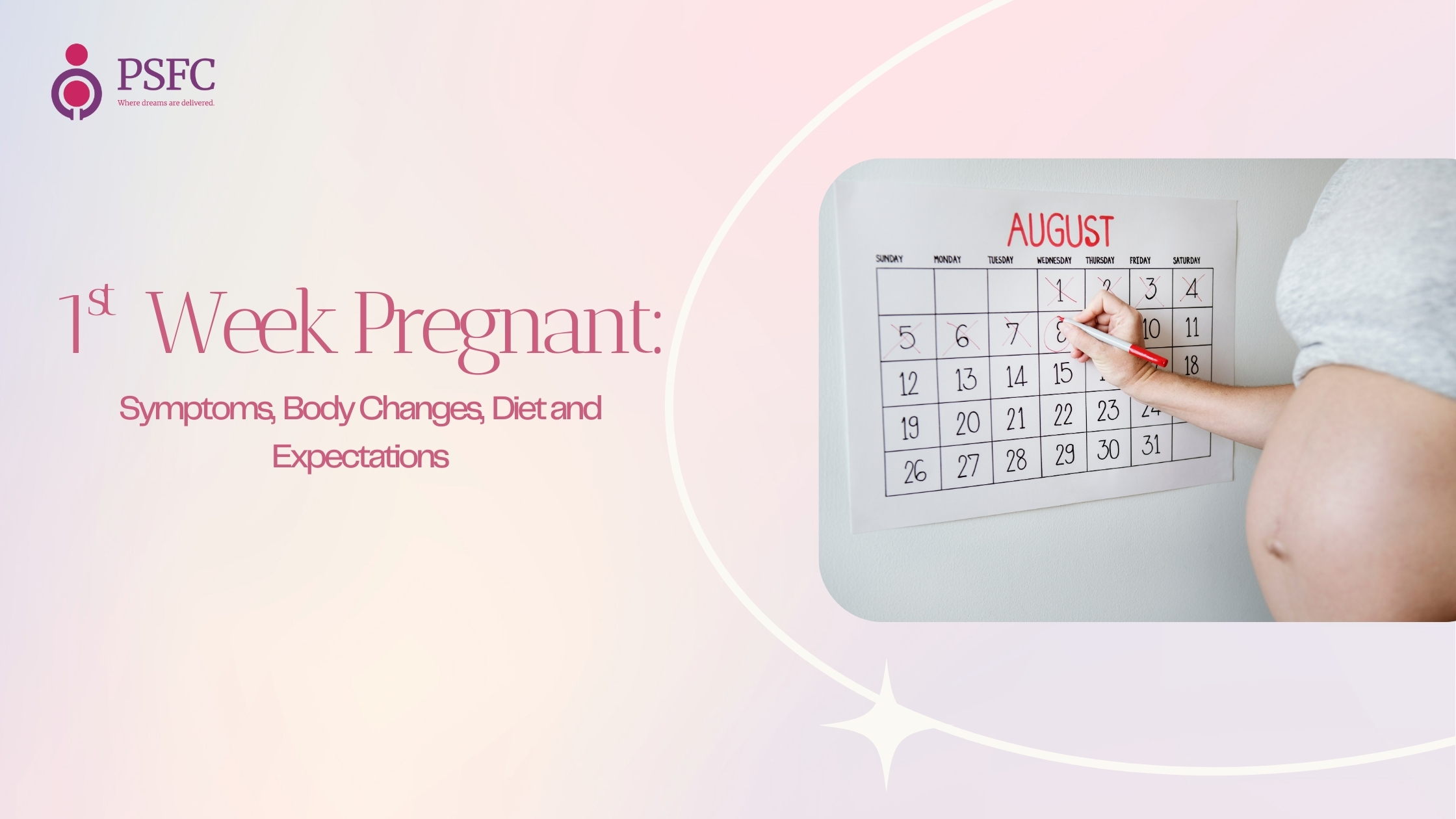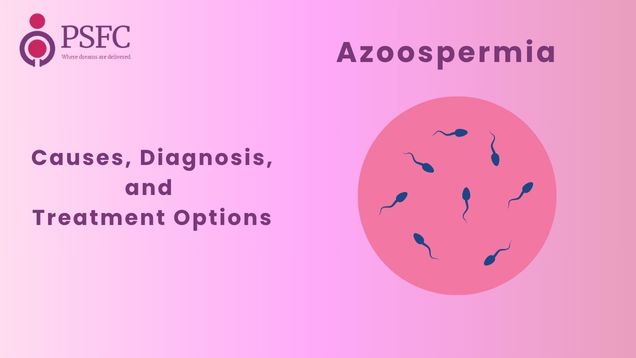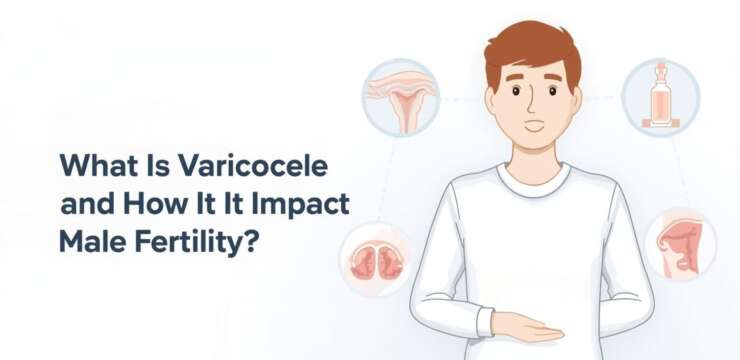Pregnancy can be one of the most exciting journeys of life, yet its initial weeks can often feel confusing and disorienting. Questions such as “Am I really pregnant at week 1? Am I experiencing symptoms yet? And what will happen at 1 week pregnant?” may arise at this stage.
Week one marks the beginning of pregnancy even if you are not technically expecting yet. Doctors calculate pregnancy from the day of your last menstrual period (LMP), making Week 1 equivalent to your menstrual cycle as your body prepares to ovulate and hopefully conceive in coming weeks.
This blog is your indispensable companion for understanding 1week pregnant symptoms, early body changes and diet. Additionally, when I may need to visit a physician for care.
Early Signs of Pregnancy Week 1
“Early signs of pregnancy week 1” can be both exciting and nerve-wracking for women. But here’s what matters most, most symptoms associated with your period rather than pregnancy itself are likely present during this first week. Women who are especially attuned with their cycles may detect slight changes.
Common 1 Week Pregnant Symptoms
Mild cramps or twinges – This may resemble period pains as your uterus sheds its lining, and some women may also sense ovarian activity leading up to ovulation.
Breast Tenderness – Shifting estrogen and progesterone levels may lead to fuller, heavier or sorer breasts.
Fatigue – Both hormonal fluctuations and blood loss associated with your period may make you more tired than usual, leaving you more worn-out than usual.
Mood Swings – Experiences that lead to extreme emotions such as sadness, irritability or tears may be caused by hormonal fluctuations.
Spotting – Light bleeding could simply be your period starting, while others could mistakenly interpret it as early implantation bleeding (which typically happens much later, around week 3).
Tip: Don’t panic if none of these symptoms appear at first; many women won’t start experiencing anything unusual until weeks 4-6, when hormone levels start shifting dramatically.
Can Pregnancy Test Results Be Positive at 1 Week?
One of the most frequently searched queries online is, “Can a pregnancy test show positive after one week?”
Answer is “no”, at least not yet.
Here’s why: Pregnancy tests detect the hormone HCG(human chorionic gonadotropin). HCG levels only increase once fertilized eggs have implanted into your uterine lining and you have given birth. Implantation usually takes place 6-12 days after ovulation (roughly in week 3 of your cycle).
At one week pregnant, your body has likely just started its menstrual cycle; thus a pregnancy test would typically come back negative.
When Should You opt For Testing Instead?
For best results, pregnancy tests should be administered when: Your missed period (roughly 4 weeks pregnant). To get more accurate results, it is best to test several days after missing your period.
Another frequently-asked question: How will my 1st week pregnant belly feel?
At this stage, your belly may not show or feel any different as you technically aren’t pregnant yet; however, you may experience symptoms connected with menstruation cycles.
Week One Common Stomach Feelings
Bloating can be caused by fluctuating hormones and water retention during your period, which causes fluctuation. Cramping occurs as your uterus contracts and expels its lining, leading to period cramps. No noticeable change – many women report feeling completely normal this week.
Remember: Changes related to pregnancy (such as nausea, bloating or an increasing bump) typically start presenting between weeks 5-8.
What Is a Normal HCG Level at 1 Week?
Are You Tracking Hormones at 1 Week Pregnant? (Frequently Asked Question about HCG Levels at Week 1)? If this is something that interests you, here’s some guidance: What
Should My HCG Levels Be at Week One Pregnancy?
At this stage, your hCG levels should be 0 mIU/ml as you have not yet become pregnant.
How hCG Works:
In Weeks 1-2 – prior to implantation – administer 0mIU/ml. After implantation occurs, blood levels should reach 5-426 mIU/ml within weeks 3-4. Early gestation can increase estrogen levels to double every 48-72 hours. Therefore, if you perform an initial pregnancy test within week one, the outcome will likely be negative.
What Happens in the First Week of Pregnancy?
Are You Wondering What Happens at 1 Week Pregnant? Find Out Now! Your body is getting ready for pregnancy during this crucial phase – think of it as its foundation stage.
What is going on inside of you:
Menstrual Cycle Commences – As menstruation begins, your body sheds the old uterine lining.
Hormonal Reset – Estrogen and progesterone levels decrease after hormonal reset.
Ovarian Activity Begins – Follicle Stimulating Hormone (FSH) tells your ovaries to start producing new eggs and get ready to produce more.
Uterine Preparation – Your body begins preparing your uterus by creating a fresh lining ready for fertilized eggs during an upcoming cycle.
Simply put: week 1 isn’t about you yet it’s all about preparing the ideal environment for your unborn baby to grow in.
What to Eat during the First Week of Pregnancy (Nutrition for Healthy Babies & Mothers)
Though you are not technically pregnant yet, diet has an even more profound effect. A nutrient-rich diet helps your body get ready for ovulation, fertilization and early pregnancy.
Best Foods to Eat This Week 1
Green leafy vegetables (spinach, kale, broccoli) contain folate to protect against birth defects.
Lean proteins (chicken, eggs, beans, lentils and fish like salmon) play an essential role in cell development and hormone balance.
Whole grains (quinoa, oats and brown rice) provide long-term energy and fiber.
Fruits (bananas, oranges, berries and mangoes) contain abundant sources of vitamins and antioxidants.
Healthy fats (such as avocado, nuts, olive oil and flaxseeds) – such as those found in avocado, nuts and olive oil – help stimulate hormone production.
Dairy products such as milk, yogurt and cheese contain calcium for bone health.
Foods to Limit or Avoid
You should limit or avoid high mercury fish such as shark, king mackerel and swordfish.
Reducing caffeine intake – limit yourself to no more than 200 mg a day (about one cup of coffee).
Alcohol and smoking – detrimental for fertility and pregnancy.
Pro Tip: When trying to conceive, take at least 400 micrograms of folic acid as this will help protect against early neural tube defects.
Early Pregnancy Medical Visits and When to See a Doctor : Are They Necessary
After one week pregnant, most women don’t need to visit a physician yet; however, an early visit may prove beneficial in certain circumstances.
When to See a Doctor in Early Pregnancy.
Your periods have become extremely irregular or even absent altogether. You have had severe discomfort or heavy bleeding or multiple miscarriages or fertility struggles in the past. Health conditions include thyroid conditions, diabetes, PCOS and hypertension.
Are You Over 35 and TRYING to Conceive?
Your first prenatal appointment typically occurs between six and eight weeks pregnant, during which your physician can confirm pregnancy and check the baby’s heartbeat.
As you wrap up week 1, your body is just finishing its preparation for the main event: ovulation. The journey is just beginning, and what happens next is crucial.
Ready to find out about ovulation, fertilization, and the very first signs of development?
Continue to Week 2 Pregnant: Your Next Steps and What to Expect
FAQs About Pregnancy In The First Week
1. Can You Feel Pregnant after One Week?
No. Most early pregnancy symptoms (such as morning sickness ) usually begin appearing between weeks 4-6 of gestation.
2. Can Implantation Happen Within Week One?
No. Implantation usually takes place 6-12 days post ovulation which typically falls around week three.
3. Will my lifestyle need to change in Week One?
Yes! Even prior to conception, reduce caffeine and alcohol consumption and incorporate more nutritious meals into your diet.
4. Can stress influence conception?
Yes. High stress levels can interfere with ovulation.




